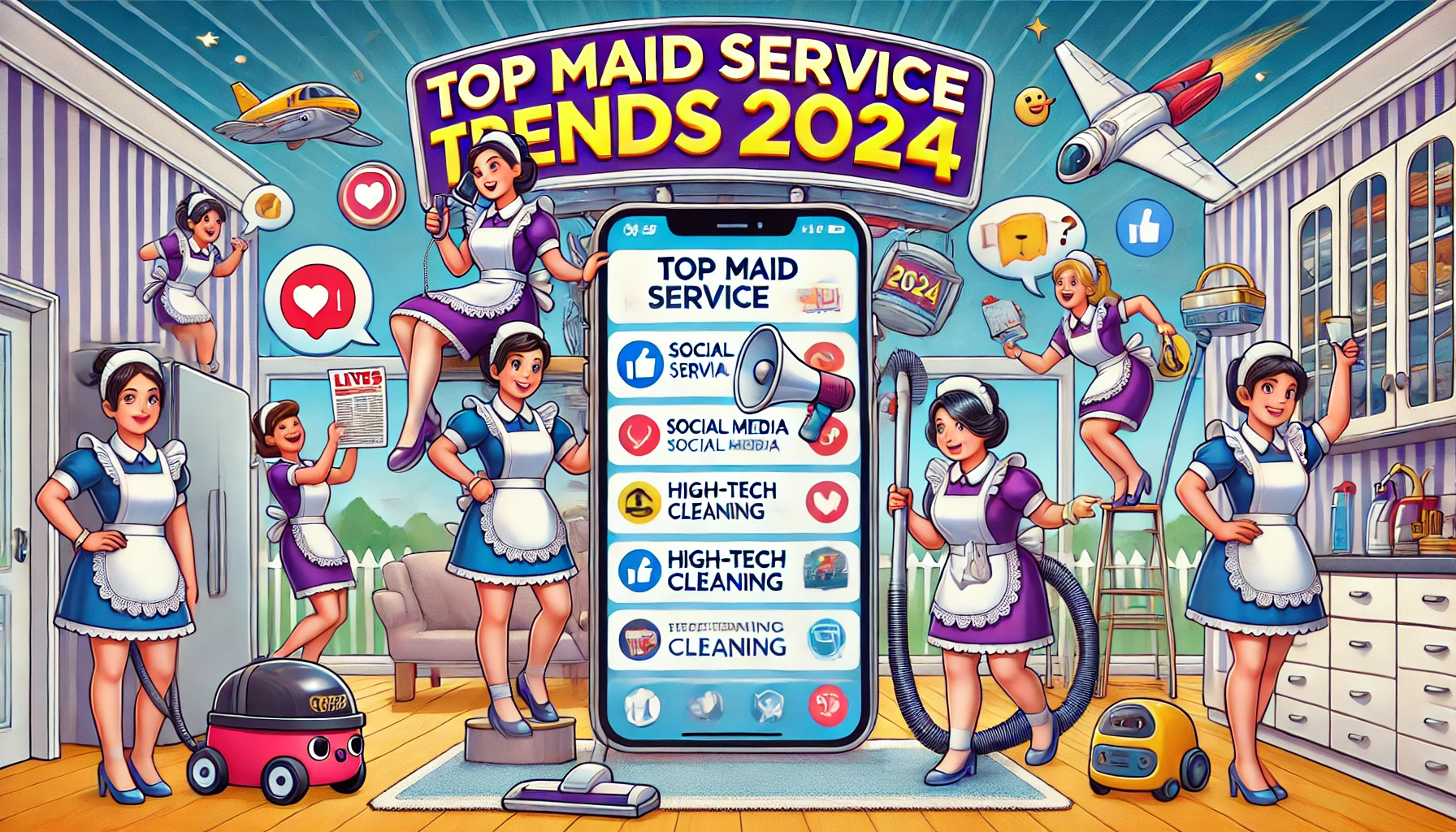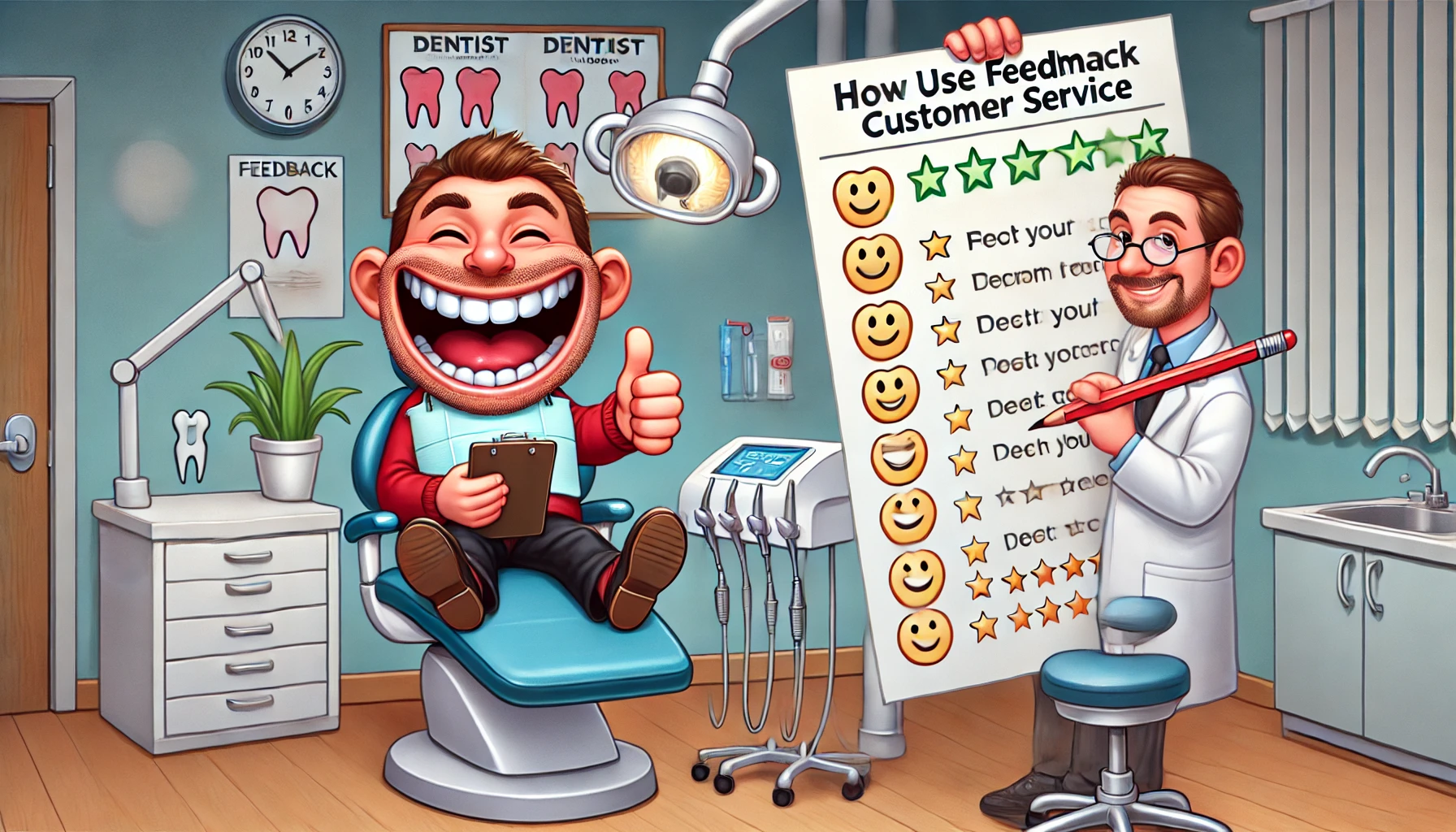Dental marketing: spot fake reviews easily
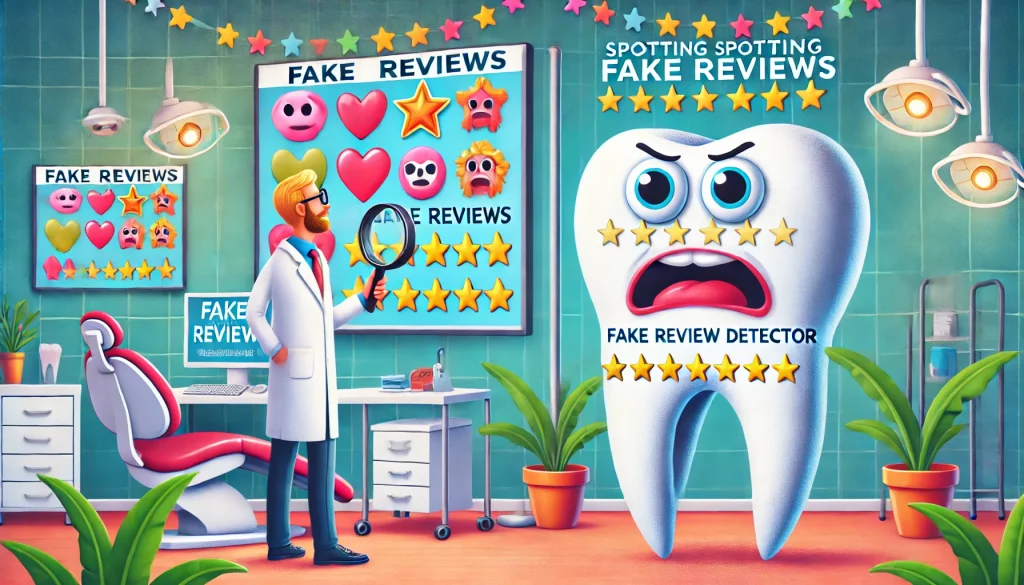
Fake reviews can significantly harm your dental practice’s online reputation. A high star rating and numerous positive online reviews can greatly benefit your dental practice by building trust among prospective patients and improving your search engine ranking.
Search engines assign a weight of 9.8% of the total ranking factors to online reviews. Dentists can mark fake reviews as inappropriate and request their removal from review websites. However, spotting fake reviews can be challenging.
How to identify fake dental reviews
Recognize marketing language
Genuine reviews usually have a natural and informal tone. Conversely, fake reviews often use extreme language to convey their message.
Fake reviewers typically avoid mentioning the physical details of your practice and instead use marketing or technical jargon.
Read the review thoroughly
Fake reviews are often written by individuals who don’t know you and have never visited your practice. If the reviewer is attempting to defame you, they might complain about staff, offices, or services that don’t align with reality.
If you notice discrepancies in the review, report it to the review listing website. Provide details about the services you offer and explain why you believe the review is false.
Check the reviewer’s profile
Most review websites allow you to examine the reviewer’s profile. Typically, a person posting fake reviews won’t have a complete profile.
If you suspect a review is fake, start by checking the reviewer’s profile description. Look for an incomplete profile, absence of a profile picture, no social connections, and a small number of reviews.
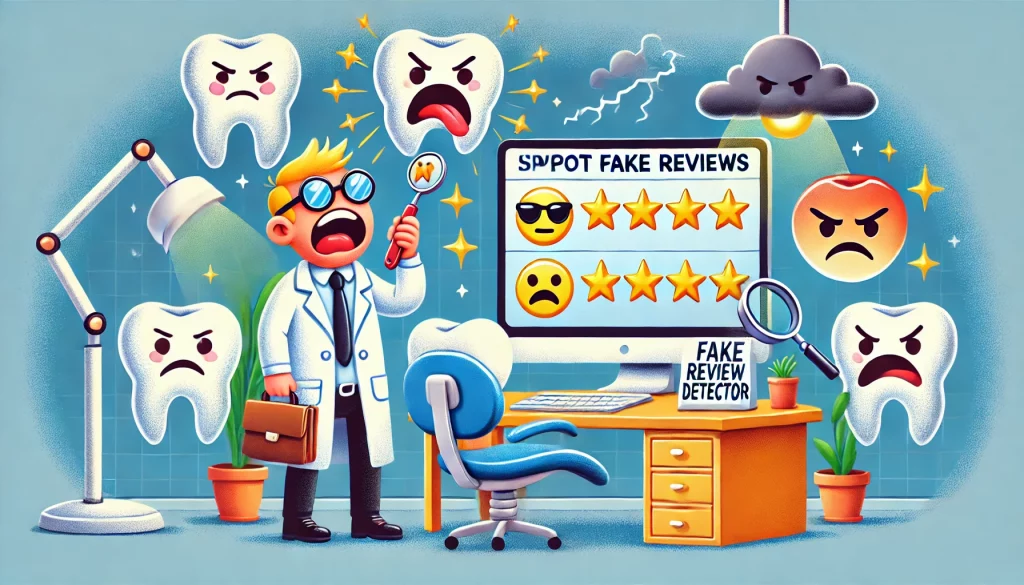
Verify with your database
Dentists and other medical professionals usually maintain a list of patients and appointments. This database can be useful for identifying impersonators.
Fake reviewers might mention procedures or treatments that you don’t provide. While you can’t publicly respond to a review you believe is fake by posting patient information (as this would violate HIPAA guidelines), you can flag the review on the review listing website and be prepared to present your case.
Monitor the frequency of reviews
If someone is attempting to defame your practice, they often won’t stop at one review. The imposter may create multiple profiles and post several negative reviews within a short period. If your practice suddenly receives numerous negative reviews, they might be fake.
Look for short and poorly written reviews
Genuine reviews, whether positive or negative, are written by patients who believe they are providing valuable information for prospective customers. Typically, a genuine review offers some detail about your practice, staff, and treatment options.
A fake review often lacks firsthand information about you and your practice, which is why they are generally short, vague, and frequently contain grammatical and spelling errors. Such reviews should immediately raise suspicion and be marked for further investigation.
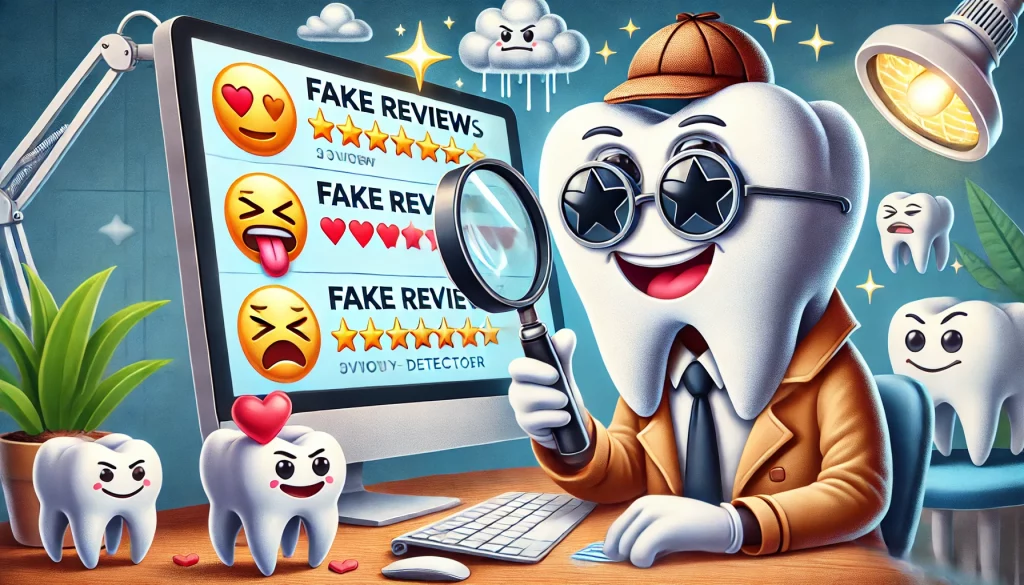
Ensuring authenticity in online reviews
Check for anomalous patterns
Look for patterns in the reviews. Sudden surges in positive or negative reviews could indicate fake activity. Repeated exclamation points or overly enthusiastic language are also common signs of fake reviews.
Reviewer’s history
Examine the reviewer’s profile. A fake reviewer might have a history of leaving multiple reviews for different products or services in a short period. Profiles with generic avatars or without detailed personal information should be scrutinized carefully.
Review content
Be wary of reviews that sound like PR materials, with repeated mentions of brand names and product specifications. Authentic reviews typically include personal experiences and specific details about the service received.
Legal action
If fake reviews are significantly harming your practice and non-legal methods fail, consider seeking legal help. An experienced internet defamation attorney can help with sending retraction demands or filing a lawsuit, although this can be a complex and time-consuming process.
Google and yelp policies
Familiarize yourself with the specific policies of review platforms like Google and Yelp. Reporting reviews that violate these policies can sometimes lead to their removal.
Be prepared to explain why a review is false and how it violates the platform’s guidelines.
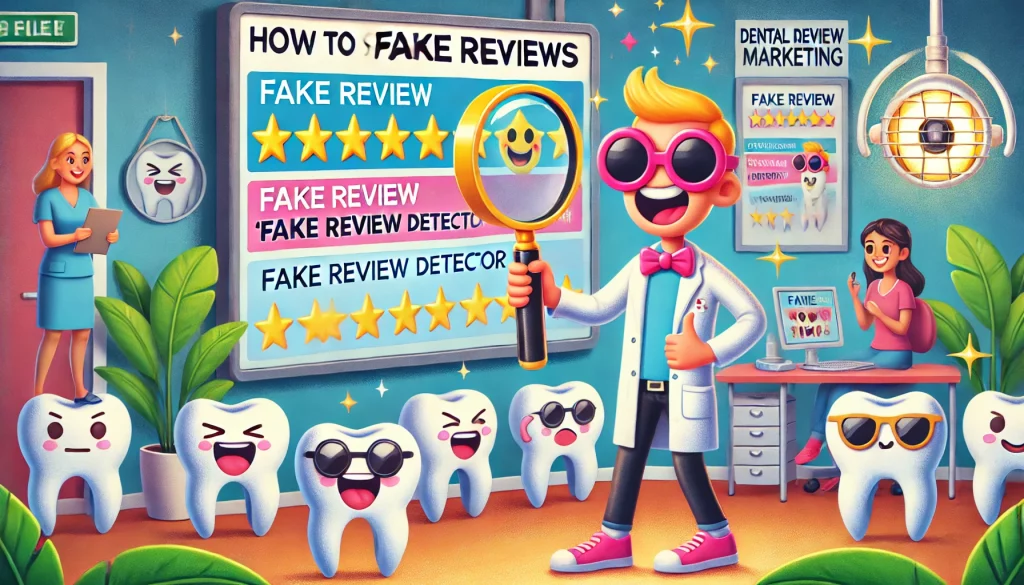
Expert opinions on dental marketing
Dr. Noah Bennett, Cosmetic Dentist: “Compare reviews across multiple platforms. If a practice has a significantly different rating on one site compared to others, it could be a sign of manipulated reviews. Consistency across platforms is more indicative of genuine patient feedback.”
Lisa Turner, Social Media Strategist: “Pay attention to the response from the dental practice. Legitimate practices will often engage with reviews, both positive and negative. A lack of responses or overly generic replies can be a sign that the reviews might not be genuine.”
Dr. Sophia Martinez, Endodontist: “Look for descriptive storytelling. Genuine reviews often read like a narrative, with patients sharing their journey and specific experiences. Reviews that lack this personal touch and instead focus solely on praising the service might be fabricated.”

 5 min
5 min 



